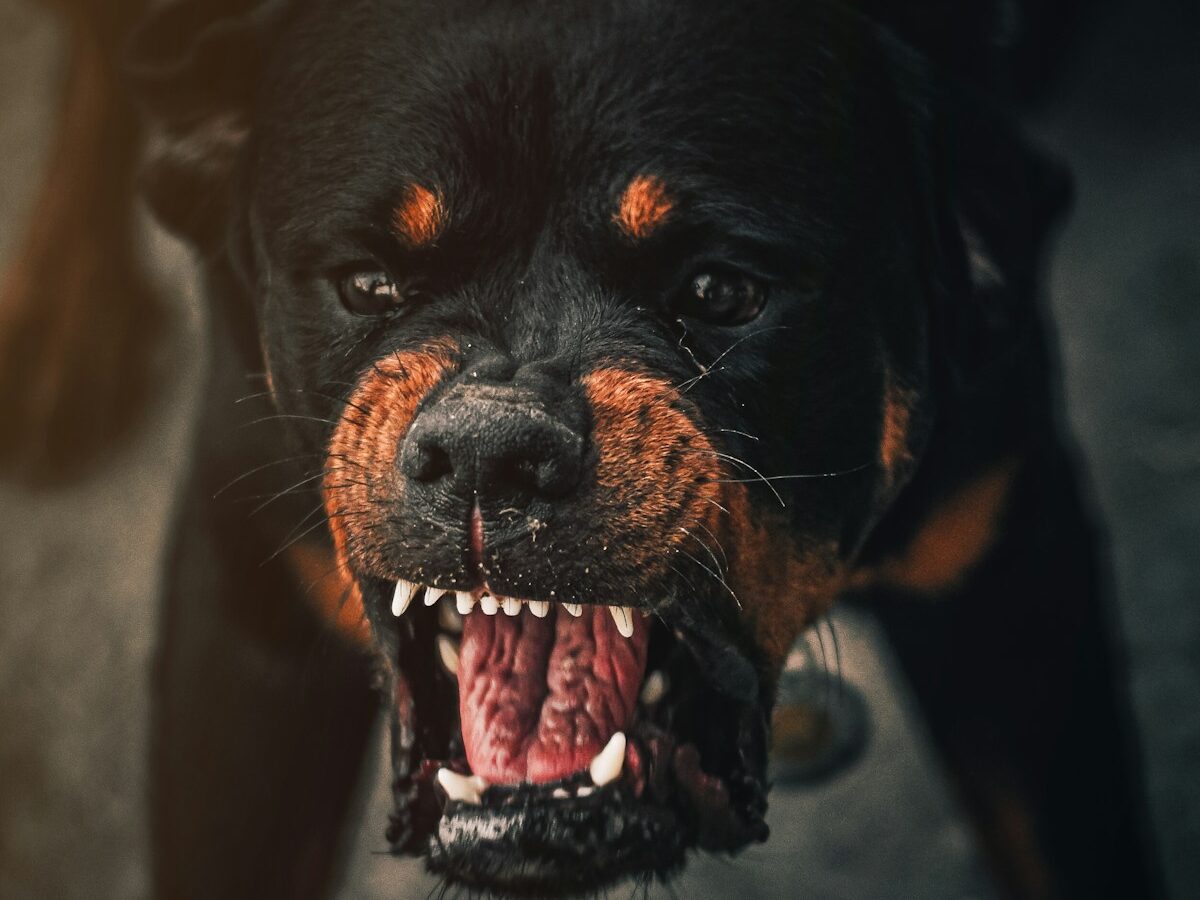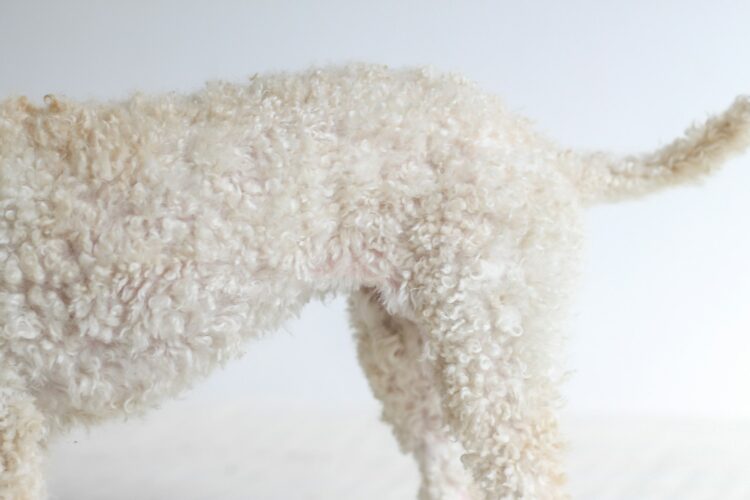
Dogs cannot use words to tell you when something is wrong, but their actions often give it away. Many owners brush off unusual behavior as stubbornness or personality. Small changes, though, often carry bigger meaning. A dog in distress shows it in ways easy to miss. Comfort and security bring back joy, while neglecting these signals lets misery quietly grow inside the home.
Constant Restlessness

A happy dog relaxes easily. When yours constantly paces, circles, or struggles to settle, it often signals discomfort. Restlessness may come from lack of exercise, boredom, or anxiety. Some owners dismiss it as energy, but it is usually more than that. Dogs need both physical and mental outlets. If constant motion fills their day, something essential is missing, and their body shows the cost.
Loss of Appetite

Dogs usually greet meals with excitement. When food goes untouched or eaten slowly, it can be a sign of deeper distress. Stress, sadness, or health concerns often suppress appetite. Some dismiss it as picky eating, but persistent disinterest is rarely normal. Watch closely. Appetite reflects well-being in dogs the same way it does in people. Regular refusal to eat is misery made visible.
Hiding Away

When a dog spends long stretches under the bed or tucked in corners, it’s rarely independence. Hiding is often a shield against worry. A content animal usually drifts toward family, not away from it. Some owners misread withdrawal as calmness, but it more often points to unease. If your dog chooses solitude over company, they may be telling you they don’t feel safe.
Frequent Destructive Behavior

Ripped cushions and chewed shoes may look like mischief, yet repeated destruction is often frustration taking shape. Dogs without enough exercise or stimulation find their own outlets. It isn’t about bad manners; it’s about unmet needs. Punishment usually deepens the problem instead of fixing it. A dog that tears through the house is often asking for attention, structure, or a change in routine.
Changes in Sleep Patterns

Happy dogs sleep deeply and comfortably. When misery sets in, rest becomes uneasy. Some dogs oversleep, using sleep as an escape, while others cannot stay down for long. Constant waking, shifting, or sleeping in odd places may point to unhappiness. Sleep reflects emotional balance. If patterns change suddenly, pay attention. Misery often shows in the quiet hours, long before it’s noticed in daylight.
Constant Barking or Whining

Every dog barks, but endless noise is often a symptom of distress. A dog who constantly whines, howls, or barks isn’t simply loud—they’re communicating discomfort. Misery makes them restless, and sound becomes their outlet. Some neighbors complain, while owners label it annoying. In truth, it’s a plea for attention, company, or change. Silence may be golden, but noise carries heavy meaning.
Loss of Interest in Play

Playfulness defines a healthy dog. When toys are ignored, games lose appeal or fetch ends quickly, it signals more than laziness. Dogs rarely stop playing without reason. Misery can drain joy from simple activities, leaving them indifferent to once-loved routines. Owners may think age is to blame, but unhappiness often shows first in the absence of play. Joyless dogs deserve closer care.
Avoiding Eye Contact

Dogs seek connection through their eyes. A dog that consistently looks away, avoids your gaze, or lowers their head isn’t just shy—it may be miserable. Eye contact shows trust. Losing it signals emotional distance. Owners sometimes miss this, assuming stubbornness, but dogs who feel unhappy often shrink from the intimacy of looking at you. Restoring comfort brings back that familiar spark.
Unusual Aggression

Sudden growls, snaps, or guarding behaviors often reveal hidden misery. Dogs lash out when stressed or overwhelmed. While aggression sometimes comes from fear, it can also signal that life at home feels unsafe. Dismissing it as a bad temperament misses the root issue. Miserable dogs often carry frustration inside until it bursts. Addressing their needs reduces conflict and restores calm, while punishment only deepens distress.
Excessive Grooming

Dogs lick themselves to clean or soothe, but overdoing it is a sign of stress. Constant licking, chewing, or biting at their paws or body often stems from unhappiness. Owners may confuse it with habit, but it’s usually self-comfort. Left unchecked, it causes sores or infections. Misery often turns inward this way, with dogs soothing themselves when no comfort comes from outside.
Loss of Affection

Dogs thrive on love. When a once-affectionate pet withdraws from cuddles, avoids petting, or no longer seeks touch, it’s not normal aloofness. It’s often misery showing up as distance. A dog that stops leaning against you or following you around may be struggling silently. Affection is a dog’s language of safety. Losing it signals something has gone wrong in their world.
Changes in Bathroom Habits

House-trained dogs don’t suddenly forget their training without cause. Accidents indoors, frequent marking, or odd bathroom behavior often reveal emotional distress. Owners may get frustrated, but misery often explains the mess. Stress upsets routines, and dogs express it in the most basic way. Instead of anger, look deeper. Sudden lapses usually point to discomfort, not disobedience, and they should never be ignored.
Loss of Enthusiasm at the Door

Few sights are as familiar as a dog racing to greet you. When that spark fades, it can signal unhappiness. A dog that no longer wags, jumps, or runs to the door when you arrive isn’t just tired. They’re withdrawn. Misery often dulls the joy of reunion. What once lit up their day becomes muted. It’s a small moment that speaks loudly about their state.
Excessive Clinginess

On the other side of withdrawal is desperation. Dogs who shadow you constantly, panic when left alone, or whine the moment you step out are often miserable. They don’t feel secure in their space. While affection is natural, dependence that feels anxious signals distress. Balance matters. A dog that cannot rest without you nearby is not comfortable in their own home.
Unexplained Physical Symptoms

Sometimes, misery in dogs shows up as vague health problems—upset stomachs, constant scratching, or lethargy without a medical cause. Emotional stress weakens their body just as it does in people. When the vet finds no issue, but the symptoms persist, look at the environment. A miserable home life often shows through the body before the mind. Healing the cause restores more than health.

